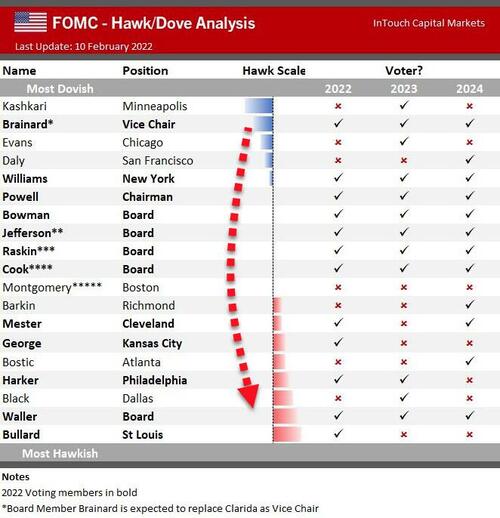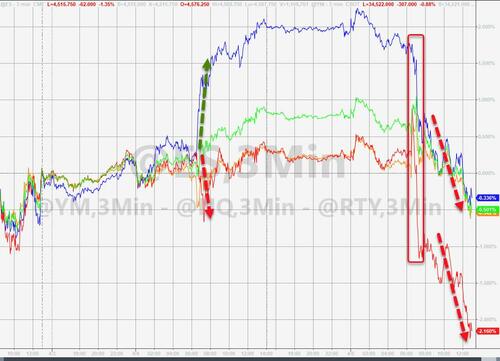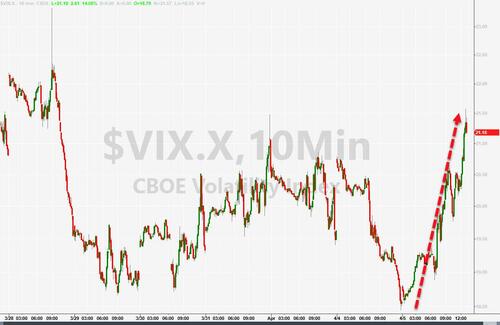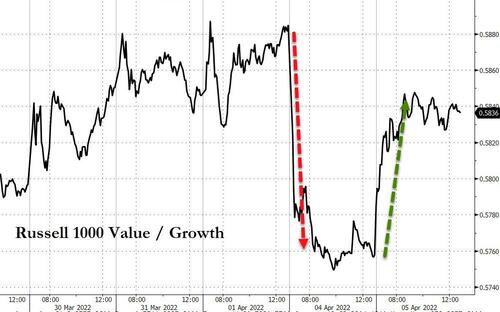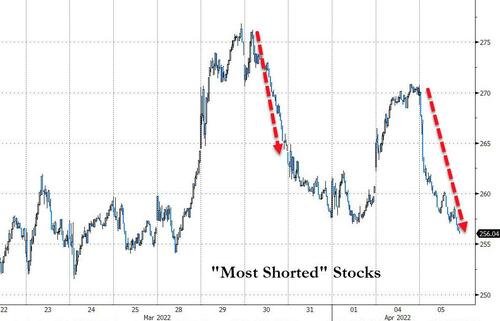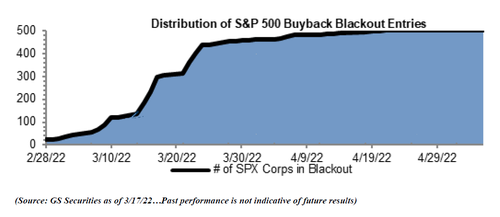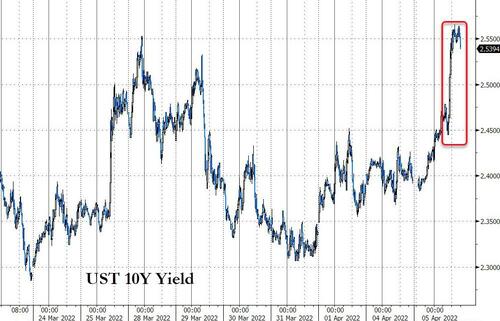Inflation Protests Erupt Across Peru As President Imposes Curfew, Calls In Military
Inflation poses severe challenges for emerging market economies. The latest example is in Peru, where social unrest spreads across the country, forcing the government to impose a curfew in the capital, Lima, on Tuesday, according to Reuters.
“The cabinet has agreed to declare a ban on the mobility of citizens from 2 a.m. through 11:59 p.m. of Tuesday, April 5, to protect the fundamental rights of all people,” Peruvian President Pedro Castillo said in a live broadcast last night.
The South American country was already struggling before commodity prices jumped to record highs because of the Ukraine invasion and virus pandemic supply chain disruptions. Social unrest began last month as demonstrations led by farmers and truckers have intensified over soaring food, fuel, and fertilizer prices.
Days ago, Peru Finance Minister Oscar Graham reduced the consumption tax for fuel and basic food items, hoping it would quell protests.
This all comes as Peru’s annual inflation hit 6.82% in March from a year earlier, the most since August 1998. April’s number is expected to top 7%.
Higher commodity prices, pushing up overall inflation, is metastasizing into a political crisis for Castillo, whose slumping popularity could fall even faster. Castillo has also called in the military to control violent protests.
“This strike isn’t happening just here, it’s all over Peru,” one unnamed protester told Reuters.
Peru’s president declared a state of emergency in the capital Lima as violent protests over inflation led to clashes with police, blocked highways and food shortages https://t.co/95yYfgMgFs pic.twitter.com/gwzVCpJyGm
— Bloomberg Quicktake (@Quicktake) April 5, 2022
PERU: The country has declared a state of emergency, mobilized the military to support riot police, and issued several cities a curfew after nationwide protests against inflation, fuel prices and the government spread for a week. pic.twitter.com/W2v18kNDK9
— Apex World News (@apexworldnews) April 5, 2022
Dmonstrators clash with riot police during a partial strike of cargo and passenger carriers in Peru. A partial strike of cargo and passenger carriers caused road blockades and suspension of classes in Peru.#Peru #Clash #Police #Strike #Demonstrator
(Photo by Gian MASKO / AFP) pic.twitter.com/IGIKv5oS50— Bishesh News (@BisheshNews) April 5, 2022
Besides tax cuts, the government has desperately raised the minimum wage by about 10% to about $322 per month.
As the situation worsens in Peru, none of this should be surprising to readers. We’ve explained that social unrest in emerging market economies was inevitable due to the rapidly rising cost of everything.
… and it’s just not Peru that is being impacted by inflationary forces on the continent but every country in South America. The continent is a ticking time bomb for unrest.
We’ve also outlined countries outside South America that could be prone to unrest due to inflation and food shortages.
Tyler Durden
Tue, 04/05/2022 – 16:40
via ZeroHedge News https://ift.tt/mIQgTu7 Tyler Durden






